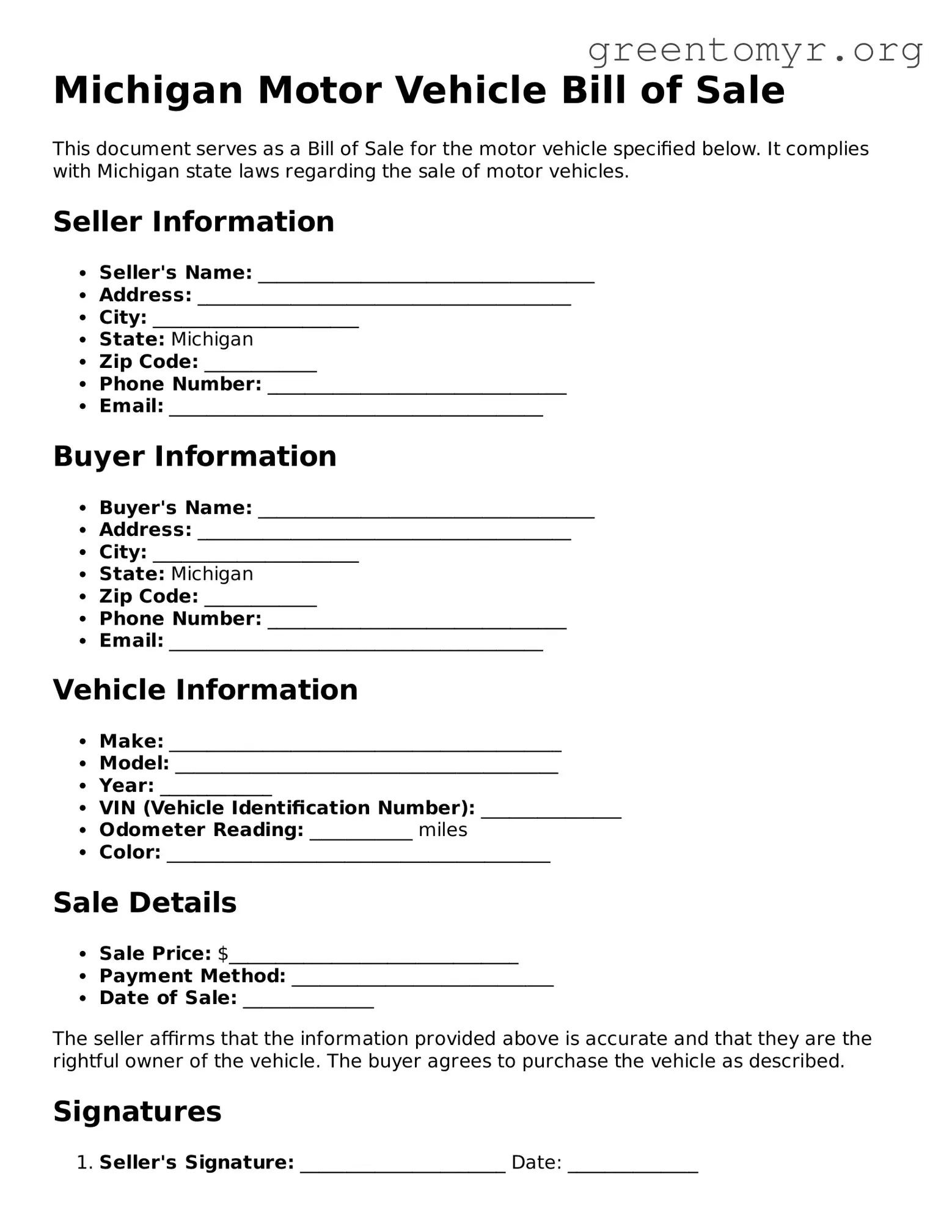What is a Michigan Motor Vehicle Bill of Sale?
The Michigan Motor Vehicle Bill of Sale is a document that provides proof of the transfer of ownership for a motor vehicle from one party to another. It includes details such as the buyer's and seller's names, vehicle information, sale price, and date of the transaction.
Is a Bill of Sale required in Michigan?
While a Bill of Sale is not legally required for vehicle transfers in Michigan, it is highly recommended. This document serves as a record that can protect both the buyer and seller in case of disputes regarding ownership or sale terms.
When completing a Michigan Motor Vehicle Bill of Sale, you should gather the following information:
-
Buyer’s full name and address
-
Seller’s full name and address
-
Vehicle identification number (VIN)
-
Make, model, and year of the vehicle
-
Odometer reading at the time of sale
-
Sale price
-
Date of sale
Who should sign the Bill of Sale?
Both the seller and the buyer should sign the Bill of Sale. This creates a mutual agreement regarding the transaction. In some cases, a witness signature and notarization may also be beneficial, even though it is not mandatory.
How does the Bill of Sale impact vehicle registration?
A Bill of Sale is not required to register a vehicle in Michigan. However, having one can ease the registration process for the buyer. It serves as proof of ownership when applying for a new title and registration with the Secretary of State.
What should I do after completing the Bill of Sale?
After completing the Bill of Sale, both the buyer and seller should keep a copy for their records. The seller should provide the buyer with the signed document, and the buyer should present it when registering the vehicle.
Can I create my own Bill of Sale?
Yes, you can create your own Bill of Sale as long as it includes all the necessary information. There are templates available online. Just make sure the information is accurate and clearly laid out to avoid any issues during the sale or registration process.
What if there are errors in the Bill of Sale?
If you find any errors in the Bill of Sale, you should correct them immediately. Both parties should initial any changes made to the document. If a significant mistake occurs, it may be best to create a new Bill of Sale to ensure clarity and accuracy.
A Michigan Motor Vehicle Bill of Sale form can be obtained from various sources. You can find printable forms on the Michigan Secretary of State's website or from reliable legal resources. Additionally, you may also create one yourself based on the required information.
